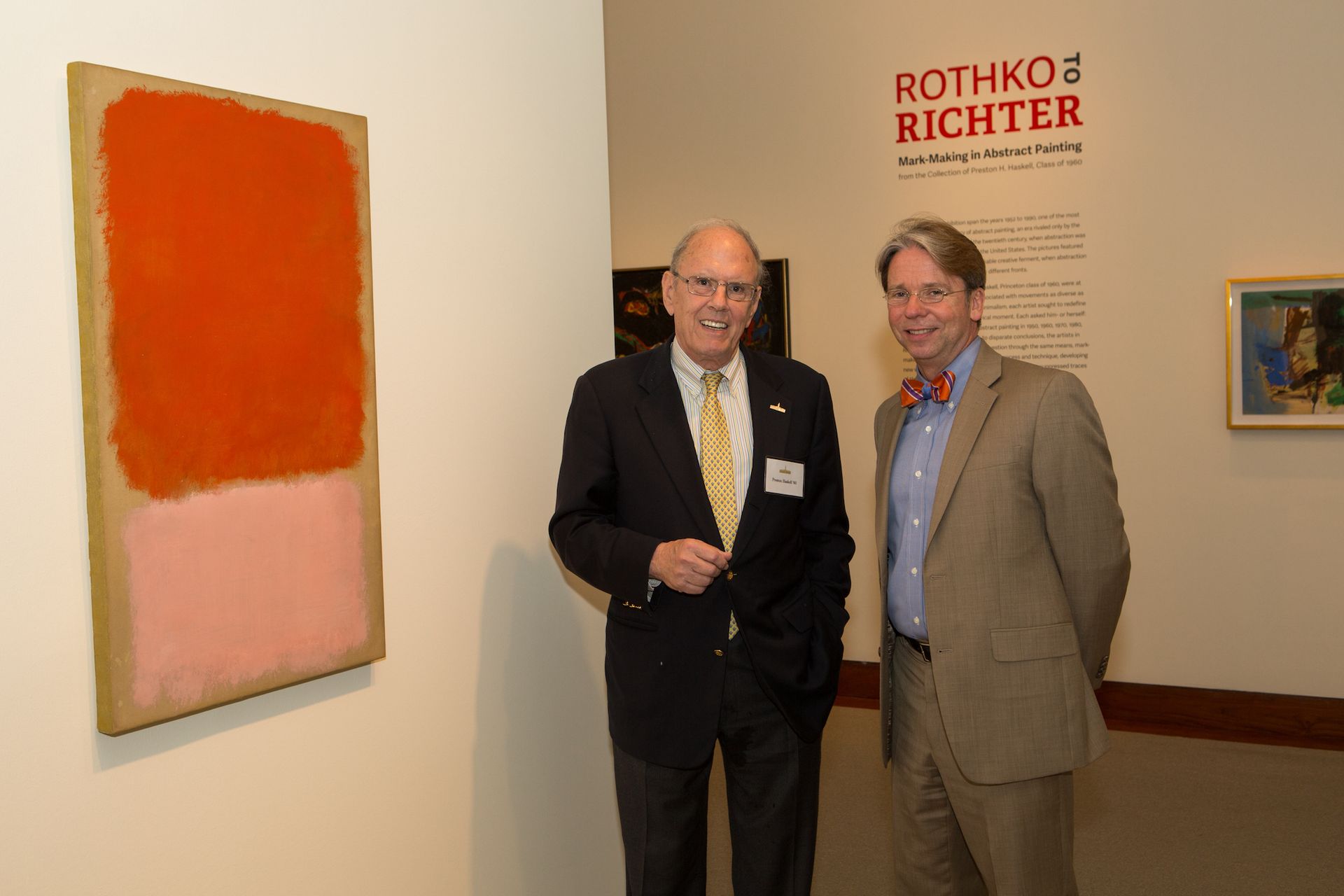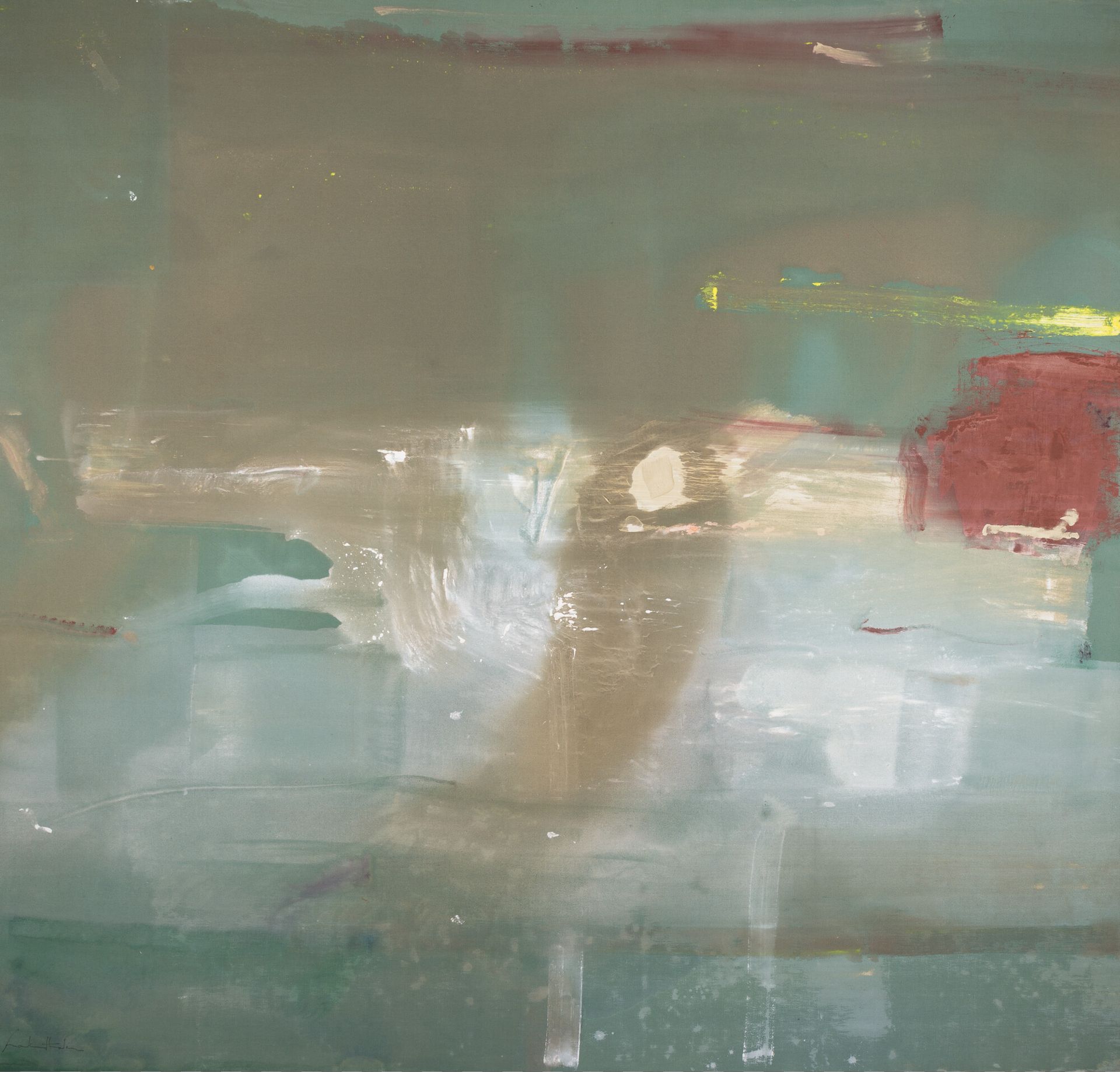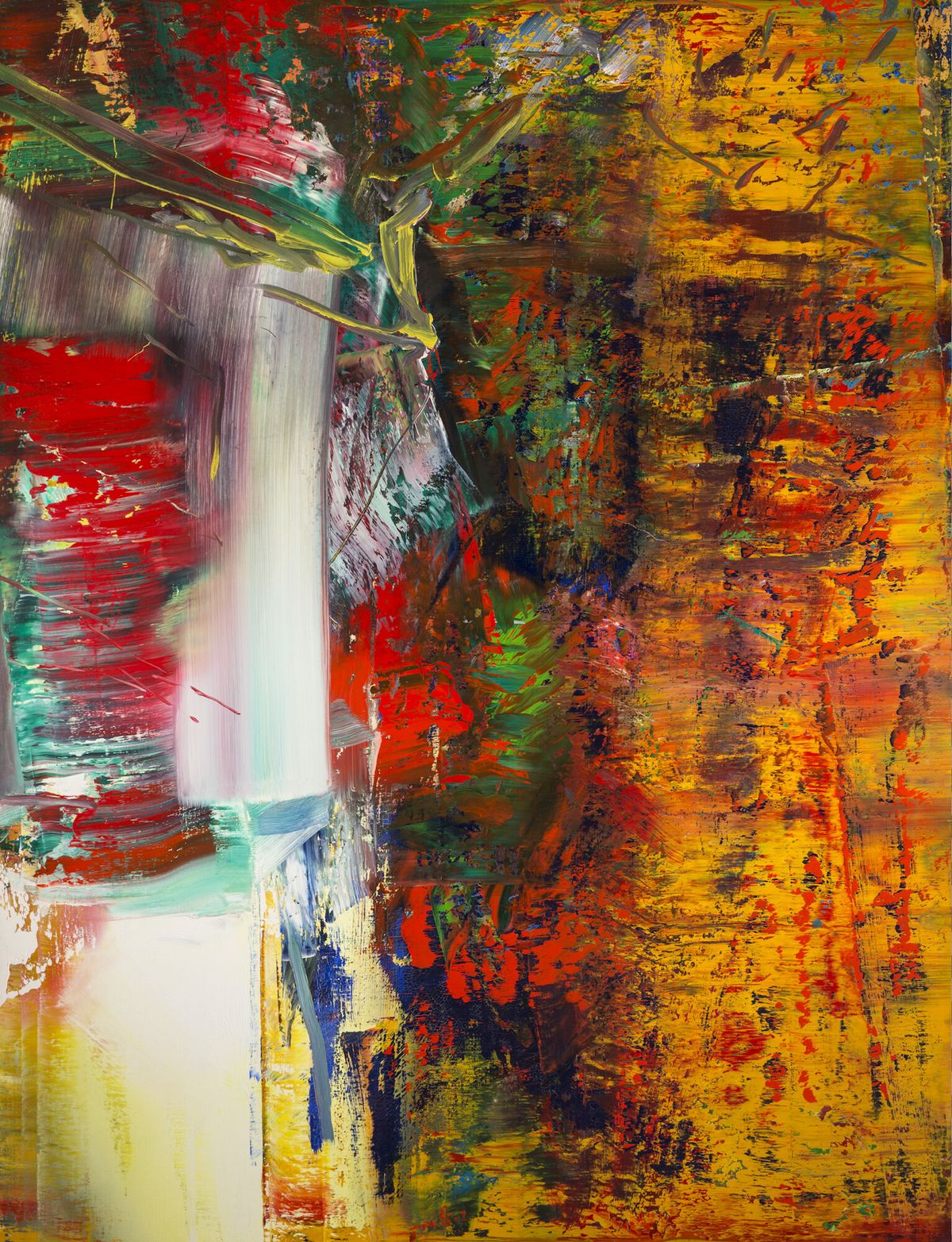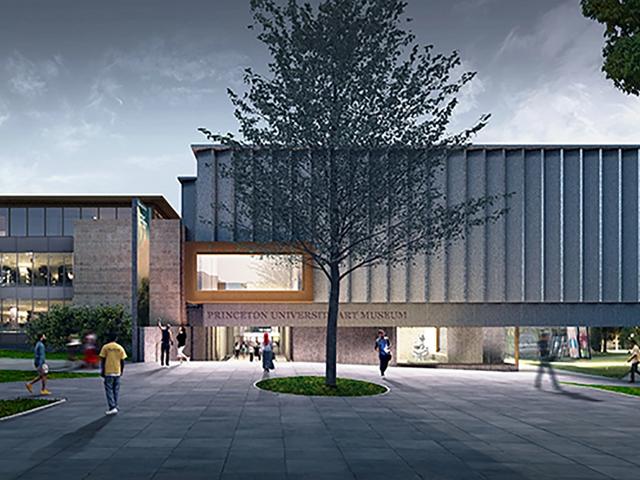Works by Helen Frankenthaler, Mark Rothko and Gerhard Richter are part of a major gift of abstract paintings donated to the Princeton University Art Museum—what the institution is calling “one of the most significant gifts in the museum’s history”. The group of masterpieces arrive from the collection of Preston Haskell, a Princeton graduate and founder of the Florida-based construction company the Haskell Company.
Haskell has also made a gift of an unspecified sum of money to support the university’s construction of a new museum building that is now underway. Those funds will establish a new education facility named the Haskell Education Center.

Preston Haskell and James Steward, the director of the Princeton University Art Museum, at the 2014 opening of Rothko to Richter: Mark-Making in Abstract Painting, an exhibition that included several paintings from Haskell’s private collection that he is donating to the museum. Photo by Andrea Kane
“Without the great collection and the scholars, curators and researchers—both permanent and visiting—you couldn’t have a great museum and you couldn’t have a great educational experience,” Haskell said in a statement. “It’s also the community museum, located in the central part of campus and open to the public. This gift was motivated by helping one of the finest art museums in the region move to the next level.”
An avid collector of postwar abstract art, Haskell is donating eight paintings from his collection: a 1961 painting from Willem de Kooning’s iconic Woman series; a moody Frankenthaler from 1979; two oils by Hans Hofmann, from 1944 and 1952; a 1975-76 diptych by Joan Mitchell; a colourful, large-scale Richter from 1986; a 1960 painting by the Canadian AbEx painter Jean-Paul Riopelle and an untitled Rothko from 1968. The works will be on view when the museum, which is now closed, welcomes the public again.

Helen Frankenthaler, Belfry, 1979. Promised gift of Preston H. Haskell. ©
Helen Frankenthaler Foundation, Inc. / Artists Rights Society (ARS ), New York / Photo: Douglas J. Eng
The new three-storey museum building will roughly double the space of the former one, providing 144,000 sq. ft for exhibitions and research. Previously, no more than 2% of the university museum’s collections, comprised of more than 114,000 objects, could be on display at one time. Leading the design is architect David Adjaye of Adjaye Associates, which has envisioned a structure of nine interlocked cubes that will sit at the very heart of the Princeton campus.
Haskell, who has served on the museum’s advisory council for 24 years and as its chair for four years, is one of several alumni supporting the construction project. The museum plans to announce additional major gifts over the next year, leading up to the building’s anticipated completion in late 2024.



